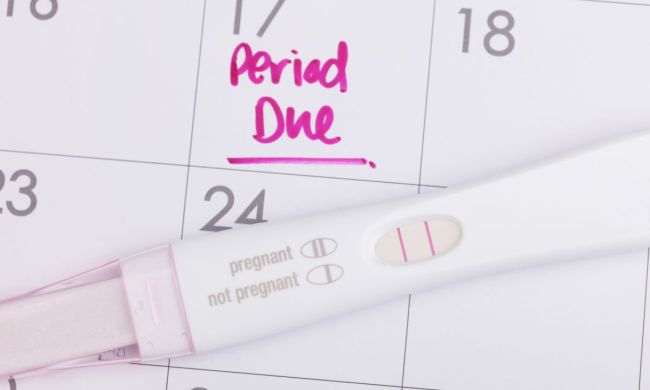Many people are aware of the physical changes that occur during pregnancy, but they often overlook the mental changes that can happen at the same time. While your body is doing the hard physical work of nurturing and growing your baby, sometimes you’re left wondering what is going on mentally.
One of the more frustrating aspects of pregnancy can be the tendency to become more forgetful, absentminded, or distractable. This phenomenon is called pregnancy brain, and yes, it really is a thing.
What is pregnancy brain?

Pregnancy brain, sometimes referred to as “momnesia,” is characterized by bouts of forgetfulness, memory loss, and absentmindedness throughout pregnancy. Your usually sharp brain and quick memory may seem like a distant memory as you search for your car keys for the third time that day or can’t remember if you fed the dog that morning. It can be frustrating, especially if you’re usually on top of all the minute details that you suddenly can’t seem to hold on to.
The good news is, that most of the people in your life won’t notice these occasional lapses, and after your baby is born, your cognitive function should return to normal.
How does pregnancy affect your brain?

Researchers are torn on what exactly causes pregnancy brain. While studies have shown that there is some level of cognitive dysfunction during pregnancy, the reasons are a little blurry. One thing we do know for certain is that during pregnancy, the amount of gray matter present in the brain actually decreases meaning yes, the brain actually shrinks during pregnancy.
Researchers found that while certain areas of the brain got smaller, they also became more efficient. Loss of gray matter in the frontal and temporal lobes, the areas of the brain associated with personal attachment and empathy, correlated with the mother’s increased ability to form an attachment with her baby and also experience fewer negative emotions regarding the baby after birth.
The assumption is that the shrinking areas of the brain allow the mother to form a deeper attachment to her newborn. Unfortunately, for those who experience memory loss and forgetfulness during pregnancy, the changing brain structure isn’t the culprit. Baby brain isn’t caused by structural changes — in fact, researchers aren’t sure what causes it, though there are several possible explanations.
Stress
Pregnancy can be a stressful time. Physical changes coupled with the anxiety of bringing a new life into the world may interfere with your short-term memory recall and ability to focus.
Hormones
Hormones play a huge role in preparing for and maintaining your pregnancy. From the moment of conception, your body is flooded with a variety of hormones all with the purpose of creating the perfect environment for you to grow and nurture your baby. This flood of hormones might trigger physiological changes that result in memory lapses and other symptoms of pregnancy brain.
Lack of sleep
It’s no surprise that a good night’s sleep goes the way of the dinosaurs when you get pregnant. Aside from anxiety and hormones running rampant, causing insomnia, pregnancy is just plain uncomfortable. As your pregnancy progresses and your belly gets bigger, finding a comfortable sleeping position can feel impossible. And with heartburn and baby kicks happening at all hours, a good night’s sleep may feel like a distant memory. Inadequate sleep has numerous detrimental effects on cognitive function including memory loss, absentmindedness, and inability to concentrate — all the hallmarks of pregnancy brain.
How long can pregnancy brain last?

While you might think that once your bundle of joy makes his or her appearance at long last, your baby brain symptoms should just up and disappear, unfortunately, that’s not usually the case. Studies have found that symptoms can persist after delivery and linger for several months. Lack of sleep, remember?
Once your hormones settle back down and you begin getting a normal amount of sleep (which can take a while, depending on how well your baby sleeps), your pre-pregnancy cognitive function should return. The structural changes caused by pregnancy can linger for years but eventually, the brain regroups and the shrinkage disappears.
Can pregnancy brain affect your unborn child?

General forgetfulness and anxiety are common during pregnancy, but studies do show that a mother’s stress, anxiety, and any form of depression can impact your developing fetus. “What we’ve seen is that fetuses of depressed and anxious women are more reactive, and when we look at them at four months, they are also more reactive,” explained Dr. Catherine Monk.
While some brain fog and “momnesia” are common and normal during pregnancy, if you are worried that your feelings of anxiety, stress, or sadness are becoming overwhelming, reach out to your healthcare provider. Pregnancy puts a lot of stress on a person both physically and mentally, and it’s important to care for your body as a whole to ensure a healthy pregnancy.
How to cope with pregnancy brain

It can be frustrating when you realize that things you took for granted, like your memory or your ability to multitask, aren’t working the way they always have, but treating yourself with compassion is important. Go easy on yourself while your body adjusts to its new normal. Here are a few things that might help:
Write everything down
Adding a more in-depth to-do list that includes every single thing you need to remember for the day is an easy way to stave off those moments of forgetfulness. Even if you’ve never been a to-do list kind of person, jotting down the errands you need to run, the bills you need to pay, when to put the recycling on the street, and other things you’d normally have no problem remembering is a key way to make what could have been a frustrating lapse of memory into a successfully completed day.
Use your camera
Taking photos of things like where you parked your car, where you put your keys or even the inside of your fridge can help when you hit a brick wall and can’t remember what you needed from the store or where you parked when you got there.
Exercise
Getting a workout in may be the last thing you feel like doing when you’re on day 47 of morning sickness, but physical activity is a great way to not only burn through stress but also get sleep at night.
A certain amount of absentmindedness or fluctuating emotions during pregnancy is normal, but if you’re having extreme difficulty concentrating or your mood swings are dramatic, you should consult with your health care provider. Some of the symptoms of pregnancy brain can also be symptoms of perinatal depression. If you have any concerns about your mental or emotional health, reach out to your physician.




